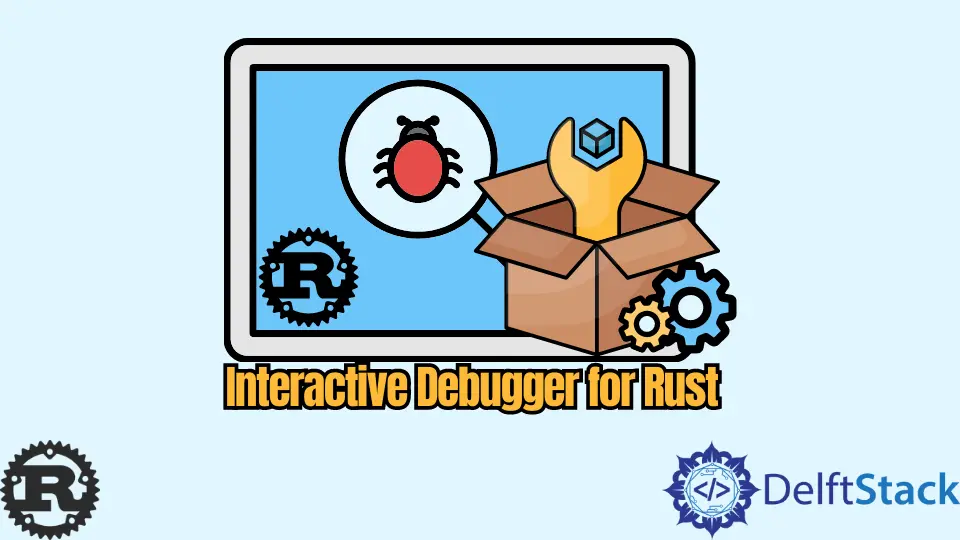How to Make An Interactive Debugger for Rust

This article will show you how to make an interactive debugger for Rust. First, let’s see how we can make it step by step.
Use VS Code and CodeLLDB Extension to Execute Programs in Rust
VS Code and the CodeLLDB extension execute programs written in Rust. The steps to be followed for having an interactive debugger for Rust are below.
-
Install VS Code.
-
Search
Rustextension or new Rust-analyzer within VS Code. -
Install the available extension in VS Code.
The extension file depends upon the operating system you are using.
C/C++ (Windows)CodeLLDB (OS X / Linux)
-
Check for the prerequisites and set up
CodeLLDBfor the platform (further setup might not be needed forv1.6). -
Search for the extension
CodeLLDBwithinVS Codeand install it. -
The main menu item
runis added by theLLDB Debugger, from where we can start debugging. We need to select the environment (the debugger): selectLLDBif the debugger is started for the first time. -
The
launch.jsonfile will be opened whenLLDBis selected. If that file does not open, it should be under your PC’s.vscodefolder.
The launch.json should look like this.
"version": "0.2.0",
"configurations": [
{
"type": "lldb",
"request": "launch",
"name": "Debug",
"program": "${workspaceRoot}/target/debug/hello_there",
"args": [],
"cwd": "${workspaceRoot}/target/debug/",
"sourceLanguages": ["rust"]
}
]
}
But suppose we want to have generic things and compile only a binary that matches the cargo folder name. In that case, we can use ${workspaceRootFolderName} variable substitution for the program key, as displayed below.
{
"version": "0.2.0",
"configurations": [
{
"type": "lldb",
"request": "launch",
"name": "Debug",
"program": "${workspaceRoot}/target/debug/${workspaceRootFolderName}",
"args": [],
"cwd": "${workspaceRoot}/target/debug/",
"sourceLanguages": ["rust"]
}
]
}
Basic Rust Program
Now our interactive debugger is ready, and we can run a program in it.
// This is the main function
fn main() {
// when the compiled binary is called statements are executed
// Print text to the console
println!("Hello, I'm using Rust.");
}
Output:
Hello, I'm using Rust.
Following all these steps properly, we can run and debug the Rust programs in VS Code. The installation of the extension and its configuration should be prioritized to ensure you can run the Rust program.